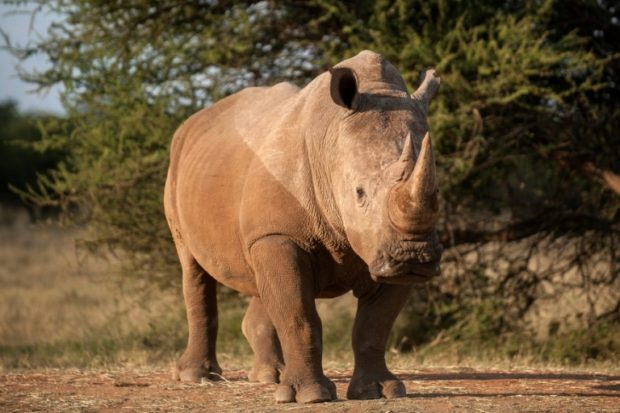Poverty, joblessness drives wildlife poaching in South Africa — study

Threatened: Rhinos are major targets for poachers. Image: AFP/Stefan Heunis
Most people convicted for wildlife poaching and trafficking in South Africa commit the crimes due to poverty and joblessness, a study by an international wildlife conservation group has shown.
A report published Thursday and compiled after interviews with 73 convicted wildlife offenders incarcerated in South Africa’s jails, concluded that 70% of them were forced into crime just to make a living.
“A variety of reasons led offenders to become involved in illegal wildlife trade, one frequent motivation being a desire to provide for their families given the lack of viable legal economic alternatives,” said TRAFFIC.
One study respondent told TRAFFIC: “I just wanted to give my children a better life than I had.”
Another said he just wanted to send his “firstborn to school so that he could get education. I wanted him to have the opportunity which I was denied as a child”.
Article continues after this advertisement“If I were working, I would not have gone and done this,” regretted another respondent.
Article continues after this advertisementYet others took the risk just to keep up with well-to-do friends.
“My friends… used to poach. They were driving cars and I wished to be like them,” said another, adding “so I ended up doing illegal things. I was fooled, and I regret what I did.”
Offenses committed included poaching, transporting, processing, storing and selling the illegally-gotten wildlife commodities.
Seventy-four percent of the surveyed offenders were serving sentences for rhino-related offenses and the rest for crimes linked to abalone and cycad trafficking.
South Africa, which for years has battled a scourge of rhino poaching fuelled by the insatiable demand for their horns in Asia, is also facing high unemployment levels of more than 30 percent.
At least 8,200 rhino have been poached for their horn in the past decade in South Africa, according to TRAFFIC. IB
RELATED STORIES:
South Africa’s indigenous Khoisan seek better recognition
Human footprints dating back 120,000 years found in Saudi Arabia